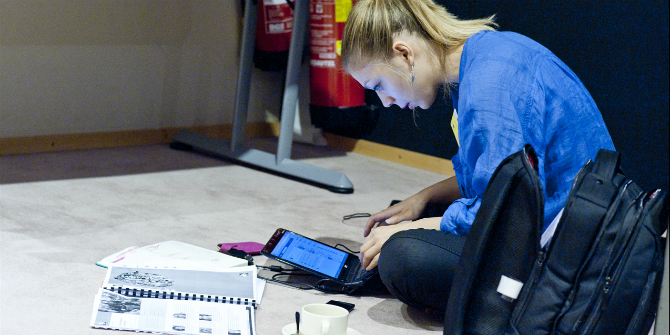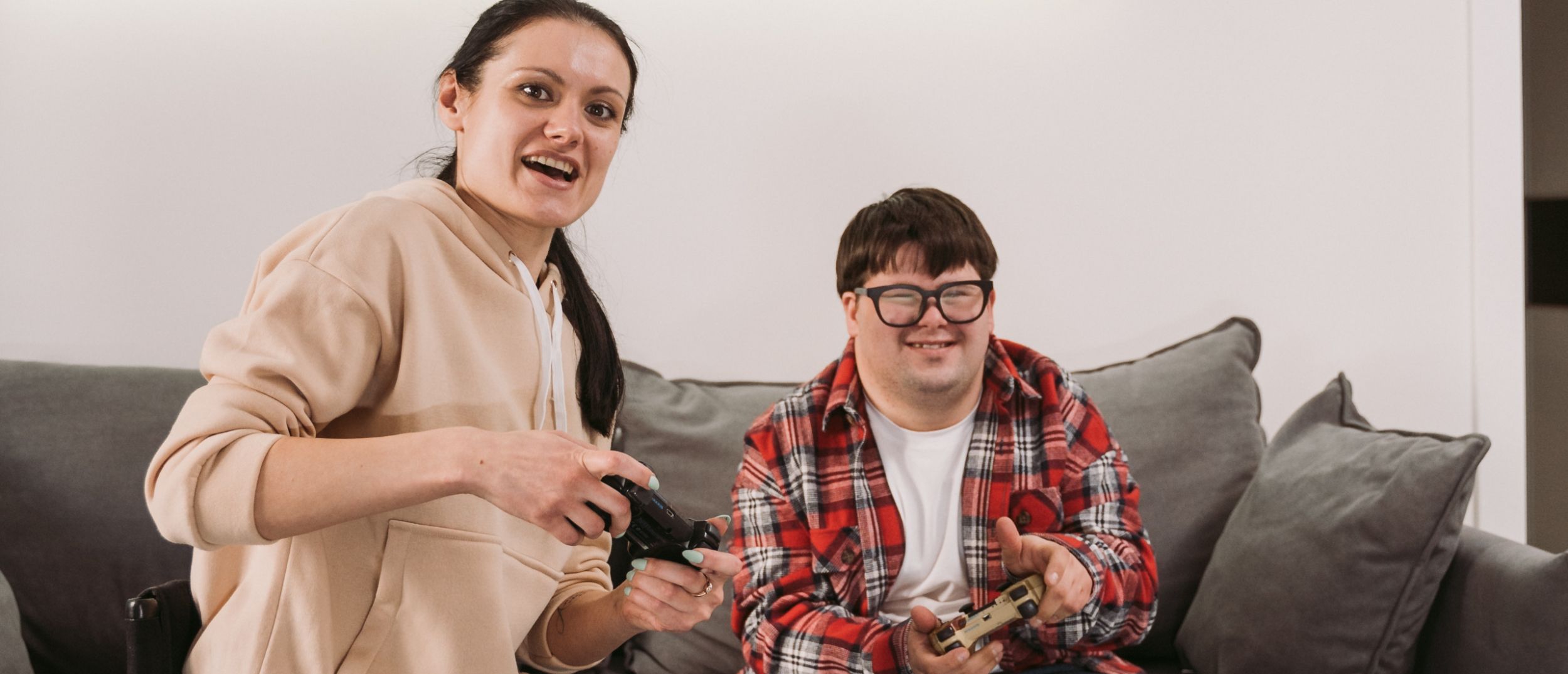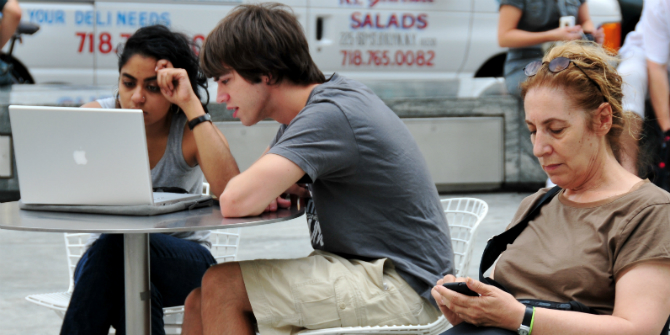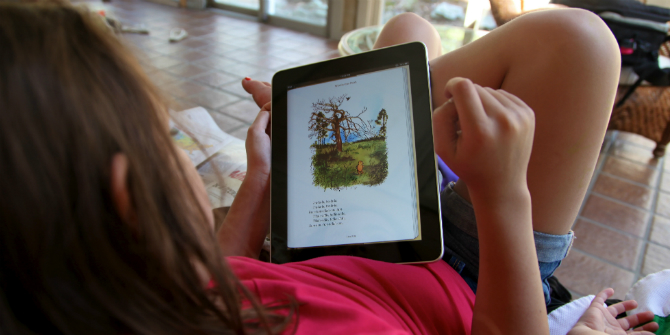 In the era of #MeToo it is important to connect how a mass feminist movement is generating change and affecting young people. In this post, Jessica Ringrose and Hannah Retallack discuss how important it is for researchers, policy makers and pressure groups alike to take stock and evaluate what schools, teachers and students are already doing to challenge sexism and gendered and sexual violence. Jessica is a Professor of the Sociology of Gender and Education at University College London Institute of Education. Hannah is a Teaching Fellow on the BA Education Studies at UCL IOE. [Header image credit: F. Butcher, CC BY 2.0]
In the era of #MeToo it is important to connect how a mass feminist movement is generating change and affecting young people. In this post, Jessica Ringrose and Hannah Retallack discuss how important it is for researchers, policy makers and pressure groups alike to take stock and evaluate what schools, teachers and students are already doing to challenge sexism and gendered and sexual violence. Jessica is a Professor of the Sociology of Gender and Education at University College London Institute of Education. Hannah is a Teaching Fellow on the BA Education Studies at UCL IOE. [Header image credit: F. Butcher, CC BY 2.0]
To teachers, students and researchers in the field of gender and education, the findings in the recent report Sexism in Schools: ‘It’s just everywhere‘ were not surprising. The study, commissioned by the National Education Union and the campaign group UK Feminista, found that more than a third (37%) of female students had personally experienced some form of sexual harassment at school and one in three teachers (32%) witnessed sexual harassment in their school on at least a weekly basis.
The study, from Warwick University, also reported that 66% of female students and 37% of male students in mixed-sex sixth forms have experienced or witnessed the use of sexist language in school and a quarter of all secondary teachers say they witness gender stereotyping and discrimination on a daily basis. Only 14% of students who experienced sexual harassment reported it to a teacher; less than a quarter (22%) of female students at mixed-sex schools think their school takes sexism seriously enough; and 78% of secondary school students are unsure or not aware of any policies and practices in their school for preventing sexism.
In 2016, the government’s first Women and Equalities Committee Inquiry and Report into sexual harassment and violence in schools concluded that children and young people’s experiences of sexual harassment in British schools had reached a crisis point and said schools must address entrenched ideas about gender used to justify sexual harassment. Whilst there have since been moves to tackle this problem through legislation to make relationships and sex education mandatory in schools, there is still no detail on what will be covered in the curriculum. Wales, on the other hand, has just released an extensive report on the future of the Sex and Relationships curriculum, including examples from practice in primary and secondary schools.
The report has similar findings to that of the committee – but will it make any difference? In the current climate of austerity, Brexit and post-truth politics, will more statistics about high rates of sexual violence change the minds of politicians and educational policy makers?
We find it salient that such a report comes at the same time as the unprecedented media attention on sexual harassment, violence and rape culture seen in the tsunami of public engagement with the #MeToo movement. But the possibility of feminist activism happening inside schools is largely ignored in public debate. Is this because of the #MeToo movement’s focus on an adult demographic? We think it is important to join up the dots connecting how a mass feminist movement is generating change and affecting young people themselves.
Highlighing young people’s gender and sexuality activisms
Researchers, policy makers and pressure groups alike should take stock and evaluate what schools, teachers and students are already doing to challenge sexism and gendered and sexual violence. For us, the need for understanding the positive dimensions of social struggle happening now is the most important element in this discussion.
We have been researching youth activisms for several years, including a 2014 study supported by the International Gender and Education Association, which explored the role of feminist groups, clubs and societies in secondary schools. We found that an incredible range of activities was taking shape, but groups supported by staff and school management were the most successful in giving young people a safe space to come together. These groups discussed issues from body image to sexual health to feminist politics and strategies for challenging issues important to them in school.
Our 2015 follow-up study on ‘Digital feminist activism against rape culture’ found that digital media offered transformative potential as a learning tool for young people in ways that were completely neglected by schools. Now, our ongoing study Gender and Sexual Equity in Schools (GASES) is attempting to move further to examine how schools proactively support feminist initiatives as well as LGBTQ support networks.
Indeed, we would like to foreground the important work being done in Wales by our research collaborator Professor Emma Renold who has developed a valuable resource, AGENDA, that addresses gender and sexual equity, diversity and violence through a cross-curricular rights-based ‘activist guide’. This tool-kit offers activities and projects that young people can undertake to explore, raise awareness of, and transform these issues. It is support for resources such as these – that value young people’s rights, views and capacity to take political action – that stand to make a difference in transforming the culture and climates of schools and beyond.
Intersectional Feminism for a whole school approach
To fundamentally change school culture we also need an intersectional feminist approach that pays careful attention to the collection of factors that are intersecting in the construction of gendered power inequalities in schools. For example, rather than separating out an attention to sexism and misogyny from homophobia, issues of gender and sexual diversity and equity need to be considered together as a package, the way they are experienced by young people. Testing for incidences of harassment without training students and teachers about the intersectional complexities of gendered and sexualized power is bound to fail.
Transforming masculinity and boys
We also need much greater attention paid to the experiences of boys and concepts of masculinity. There are repeated references in the Warwick report to what boys do to girls, but no discussion of why they do this and the pressures that boys are under. Gender scholars recognise that understanding masculine socialisation is largely about being ushered early into practices of male dominance including the traits of sexual predatory behaviour as well as practices of shaming boys and men who do not live up to these idealised forms of masculinity. Ringrose and colleagues authored the first research in England to look at how these dynamics manifest through social media and ‘sexting’ practices.
One of the complex dynamics we have to consider is that girls and women of course want to ‘self-sexualise’ as this is one of the main ways of gaining value in a wider sexist media context of rampant sexual objectification of women’s and girls’ bodies. Detailed lessons and support for young people around these dynamics is critical. Organisations like The Great Men Organisation are already doing very good work to challenge sexual double standards amongst boys and men.
Confronting adults’ fears and protecting children’s gender and sexual rights
Finally, we would like to see greater attention to the historical construction of children’s sexuality and the longstanding challenge this has presented for schools and adults. Research has found that schools’ lack of response to sexual harassment is related to the deep-seated contradictory fear that adults have around sexualisation and children’s sexuality. Historically, most peer-to-peer violence in schools has been treated as ‘bullying’ rather than sexual violence and/or harassment partly as a way to desexualise children’s relationship cultures. Teacher training must be able to effectively deal with adults’ fear and anxiety over gender and sex. As with all the aspects of the debate, recognising children’s agency, the gender and sexual cultures they are creating and participating in, and ensuring a framework guaranteeing young people’s rights is the best place to start!
Notes
This text was originally published on the IOE London blog and has been re-posted with permission.
This post gives the views of the authors and does not represent the position of the LSE Parenting for a Digital Future blog, nor of the London School of Economics and Political Science.





